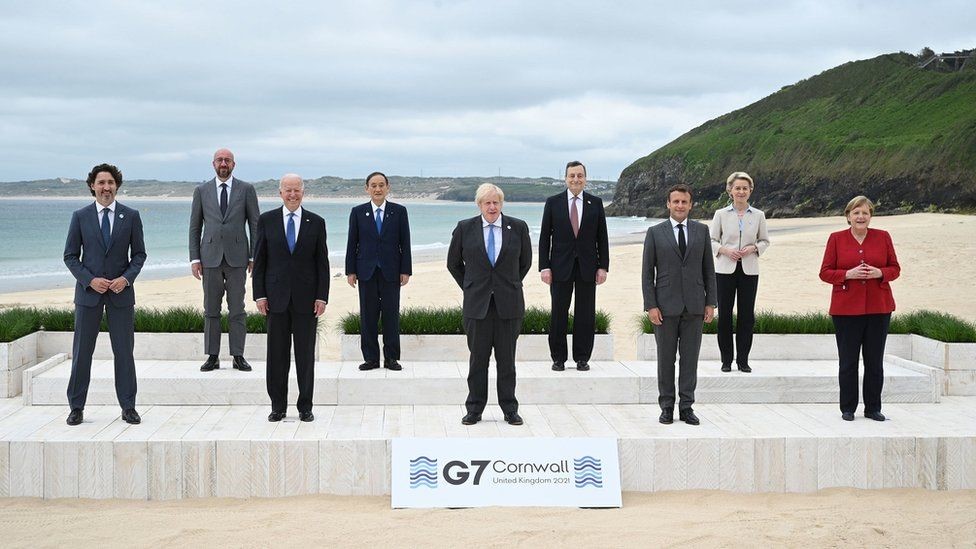In this opinion post, we hear from Ho Ting (Bosco) Hung, a BSc Politics and International Relations student at LSE, who argues that escalating tensions stemming from Russia’s invasion of Ukraine and China’s de facto endorsement will ultimately force foreign corporations to make hard choices between China and the West.

In view of the escalating scale of sanctions against Russia’s brutality, enterprises from across the world are being requested to withdraw their business with Russia, complying with the Western sanctions, or taking the initiative to leave the Russian market. The universality of withdrawal seems understandable and unquestionable because of the global community’s anger with Russia’s aggression. However, when we look back to China which also faces foreign sanctions and suppresses human rights, the transnational corporations were struggling to perform the same move. Yet, considering the growing tension between Western states and China, the companies will possibly need to make a choice between leaving the Chinese market or sticking to China in the future.
Considering the growing tension between Western states and China, …companies will possibly need to make a choice between leaving the Chinese market or sticking to China in the future.
A spiral of hostility between China and the West
Following Xi Jinping’s ascendancy of power, China has been eager to pursue a centre position on the world stage and challenge the Western-dominated international realm. Instead of continuing a peaceful rise policy, it is taking a more aggressive turn in its foreign policy direction, which arouses the fear that China’s rise could threaten the West’s security. Particularly, since American supremacy is being challenged by China’s increasing assertiveness, the United States is strongly concerned about China’s active expansion. Thus, it has adopted a hostile foreign policy against China, such as sanctioning high-level individuals and strengthening its Aukus Alliance to confront China.
Meanwhile, Xi has been consolidating his political power and repressed opposition. In Xi’s era, the human rights situation in China and Hong Kong has been deteriorating at an unprecedented pace. This has triggered the West to publicly express their concerns, issue condemnation, or impose sanctions on China. Thus, a greater tension has built up between China and its Western counterparts.
The struggle with giving up China
At this stage, companies were already struggling to abandon the Chinese market. Human rights groups have accused China of persecuting and conscripting Uyghurs in Xinjiang for forced labour to produce cotton, which is supplied to Western brands like Nike and H&M. This human rights crisis has resulted in a boycott of brands which use Xinjiang cotton. Western companies are therefore facing a tough choice of responding to the boycott or not. Responding to the international sentiment is showing their respect for human rights, which appeals to the Western community. However, some companies like Hugo Boss and Fila have shown hesitance in joining the anti-Xinjiang cotton chorus.
If companies ignore the pro-human rights heat, these firms can continue to make great profits from this important market and production base.
This can be explained by the fact that China offers a populous and profitable market, as well as an ideal production base with cheap labour and rent cost. If companies ignore the pro-human rights heat, these firms can continue to make great profits from this important market and production base. Therefore, a mass exodus of companies has not yet taken place.
The Russian factor
From firms’ reluctance to support the West’s pro-human rights campaign amid the controversy, we could see that the international pressure is not strong enough to prompt global brands to face the West’s discontent with China. Nevertheless, the international tension between China and the West is further intensified by the Russian-Ukraine War, so the companies will soon be forced to make a hard choice.
As a close strategic partner, China is facing a suspicion that it will provide assistance to the Moscow government. While China has claimed to be taking a neutral stance in the crisis, its past extension of and Treaty of Good-Neighbourliness and Friendly Cooperation and its announcement of building up a “no limit” partnership has inevitably deepened such distrust. To avoid China from intervening in the war, the Western countries have demonstrated their determination in fighting Russia by imposing an extensive series of intense sanctions. The United States President, Joe Biden, has also warned the Beijing government not to help Russia evade Western sanctions. He also implies that China could face Russian-style sanctions otherwise.
As a close strategic partner, China is facing a suspicion that it will provide assistance to the Moscow government.
The Russian factor has therefore increased the risk of continuing to operate businesses in China. China’s ambivalence is making it difficult for the market to forecast whether Beijing will support Moscow. Once China is found to engage in strategic cooperation with Russia, China could hardly escape from punishments under the tremendous international pressure. Substantial pressure could therefore arise, putting the business sector in a dilemma of choosing whether they should boycott the Chinese market.
As reflected by the upsurge of outrage against Russia, the international business climate is clearly anti-Russian. Thus, if a Chinese-Russian axis is formed in the war, associating with Russia and China could damage firms’ reputations and they can lose customers from all around the world, or possibly risk retaliatory punishments from the West. Meanwhile, since China is becoming more assertive, it will take a hard line against sanctions to deter companies from complying with sanctions. It will therefore be insurmountably difficult for foreign companies to cater to both sides’ interests and maintain customers in the corresponding market.
It will therefore be insurmountably difficult for foreign companies to cater to both sides’ interests and maintain customers in the corresponding market.
Conclusion: Firms ultimately need to make a choice
Double-dipping may once be a feasible measure which helps firms maximise their profits. However, considering the intensity of current sanctions and outrage, foreign corporations cannot avoid making a choice between China and the West, in case China is caught being Russia’s supporter. Business giants should therefore pray that China will be continuing to take an ambiguous position, and the situation of the Russian-Ukraine War will not escalate.
Follow Ho Ting (Bosco) Hung on Twitter
This article represents the views of the author, and not the position of the Department of International Relations, nor of the London School of Economics.
Beijing photo by Henry Chen on Unsplash





